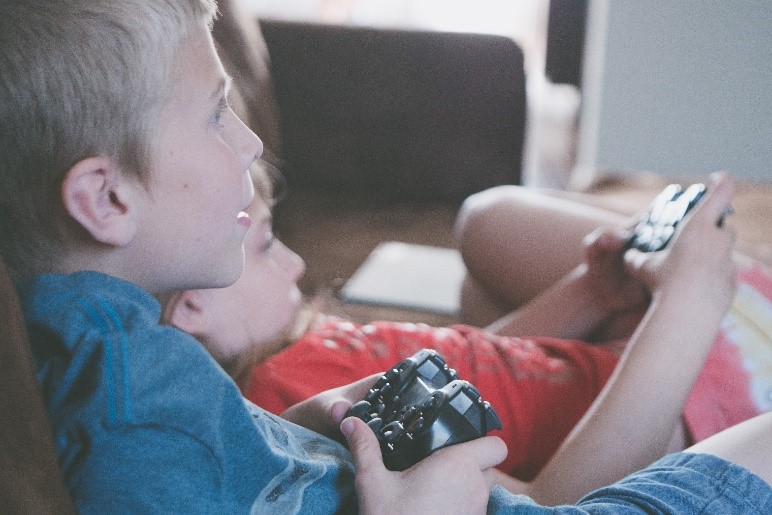Recently the World Health Organization advised that children from two to four years old should limit their “sedentary screen time” to only one hour a day – and that infants should not be exposed to screens at all.
As a parent of children at a toddler age, that can be a challenge, particularly when screens also include the TV. No more Nick Jr., anyone?
As tough as it may be to ensure your child stays active and away from those screens, it’s even worse as they grow from young children through the tween, preteen and teen years.
The older children – the ones with the devices like the ubiquitous iPhone, Xboxes and PlayStations, where entire days can be spent, glued to a screen – these are the ones you need to worry about when it comes to developing an Internet, device, or gaming addiction.
Justin Baksh, a licensed mental health counselor, certified Master’s Level addiction professional, and Chief Clinical Officer at Foundations Wellness Center in Port St. Lucie, FL, feels that parents can be in the dark about what is really happening when Johnnie or Janie spends all their time on their devices.

“This is a tough one, because you may not realize what you are up against. You have an entire industry and an army of professionals trained to work against you in this matter,” Baksh said.
Fighting the Giant Behind the Screens
Baksh points to an interesting subset of psychology called industrial psychology, which explores the inner workings of tapping into emotional needs versus wants. Companies, specifically, the marketing components of these companies, use the way you think and feel against you with marketing strategies.
“Now there are pros and cons to these,” Baksh points out, “but when you’re talking about limiting screen time, you’re fighting the giant behind the scenes, or screens.”
So what can a haggled parent do?
“Really and truly, parents have to look at themselves, not the child,” Baksh advises. “Why do you allow your child to have as much screen time as they do? Is it for education? Or is it for convenience?”
Getting to the truth of your current situation will start you in the right direction. Then, you can take steps to limit the amount of time you allow your child on any device. Perhaps phones get put up in another room after a certain time at night. Or, they are only allowed the phones when they leave the house. Games can also only be played for a certain number of hours on weekends or holidays as well.
This is Not Easy – But Then Again, Neither is Being a Parent
Baksh sympathizes with parents looking for a break or sweet relief for an hour or two here and there…and he speaks from experience.
“I was a stay-at-home dad for almost 1.5 years. I will be honest and tell you that any mom or dad that can do this full-time, for any extended period of time, my hat is off to you! That is probably the most difficult job I have ever had,” he relates. “I love my daughter, but keeping children engaged is exhausting. From outside activities, to educational and developmental activities, as well as their attention span coupled with your energy depletion…it all combines for a very exhausting day. So, it’s a lot easier to let another show slide in, or to let the time gently tick away instead of having to engage.”
Instead of beating yourself up for what has happened in the past – or even a temporary slip-up as you go – just keep moving in the right direction.
“Remember, what you are aiming for is a healthy balance of both real-world activities and passive screen time – it can work,” Baksh encourages.

Parents, Take Care of Yourselves
One thing is absolutely essential, however: Parents have to start with their own self-care and investment into their wellbeing.
“In the therapy world, we hold each other accountable for taking care of ourselves. We can’t ever expect to take care of others if our battery is empty,” Baksh said. “The same holds true for parents.”
Taking care of yourself – with all the excuses thrown out the window of why you can’t – will actually allow huge gains in having more tolerance, patience, compassion and love to give to your children. Oh, yes, and time to engage beyond the screen as well. No giant can compete with that!


